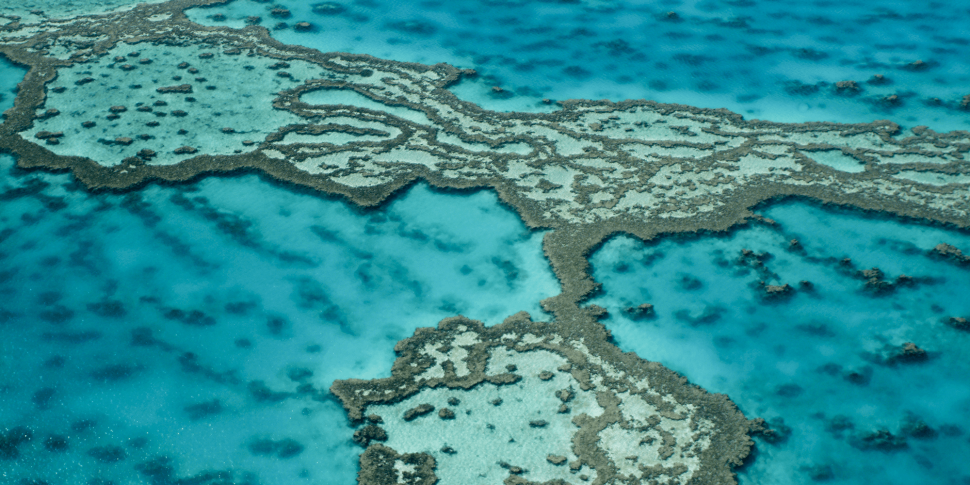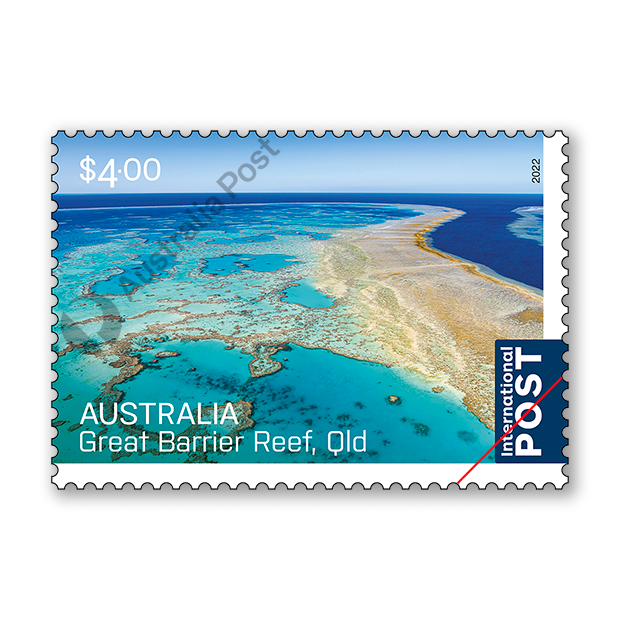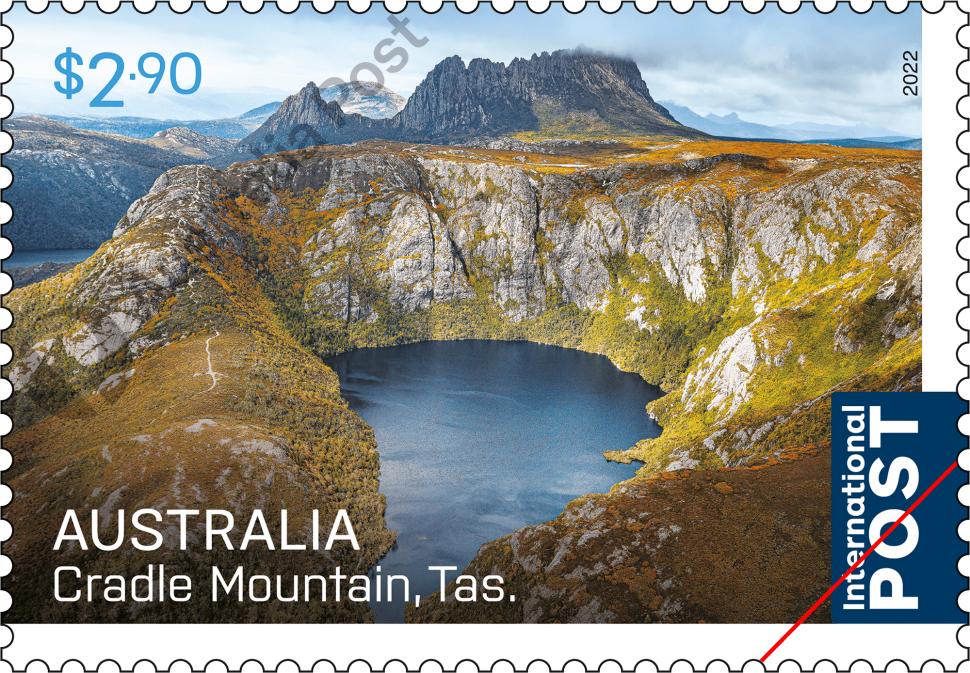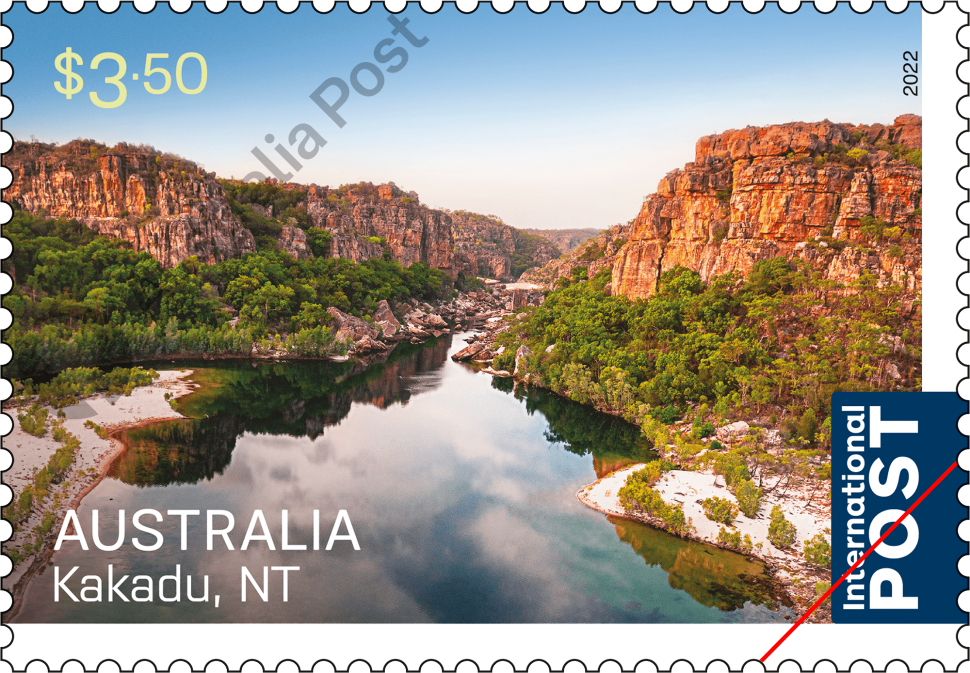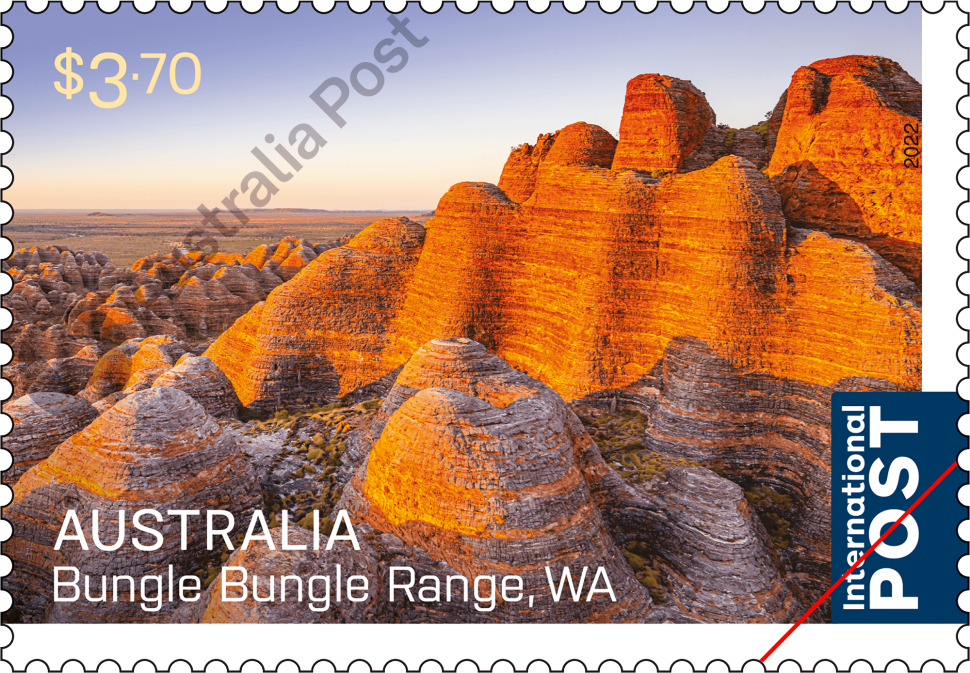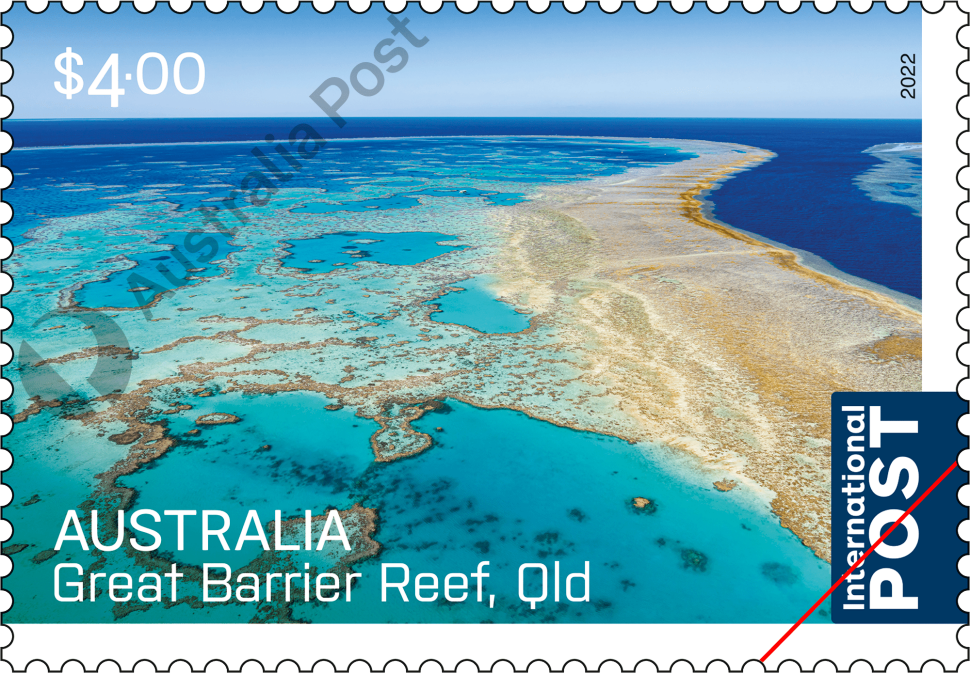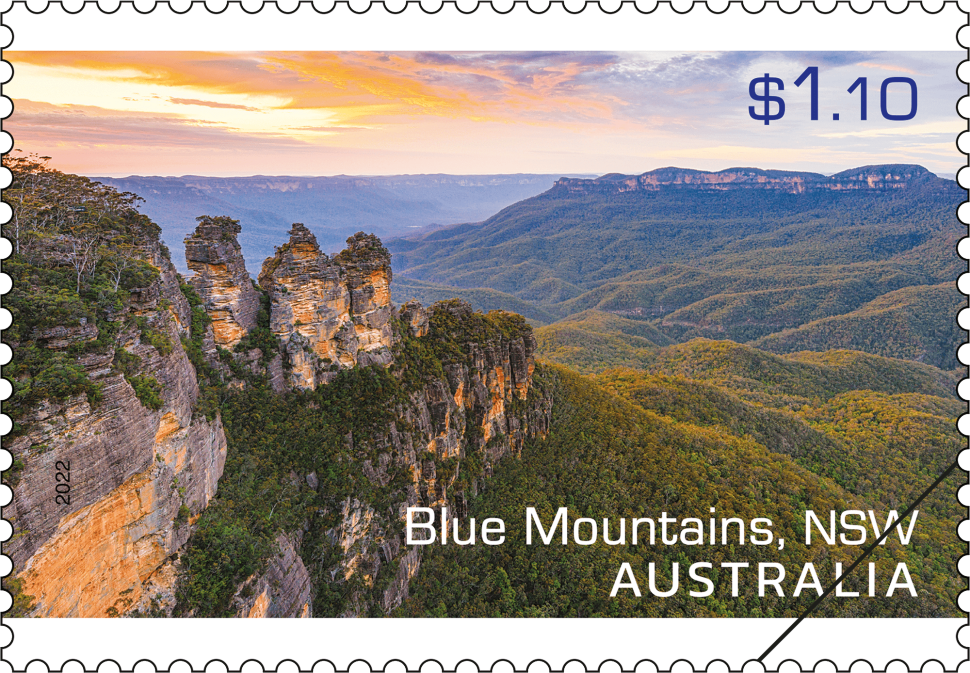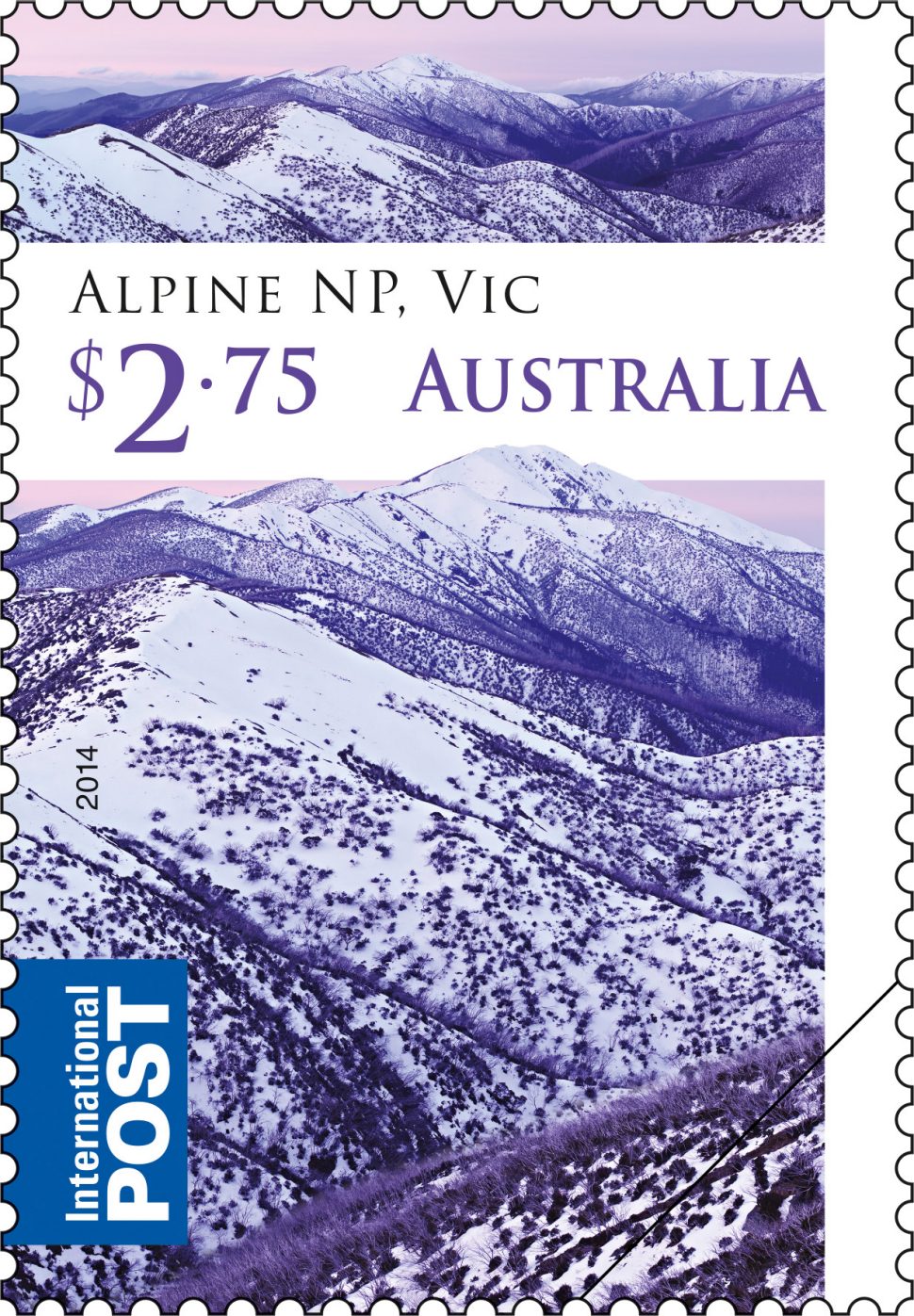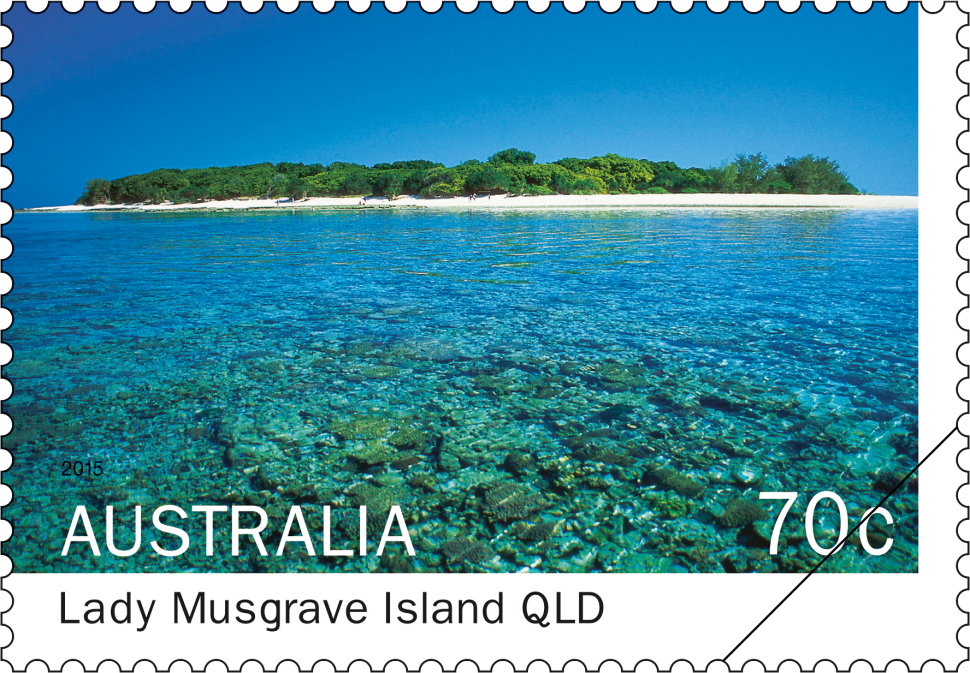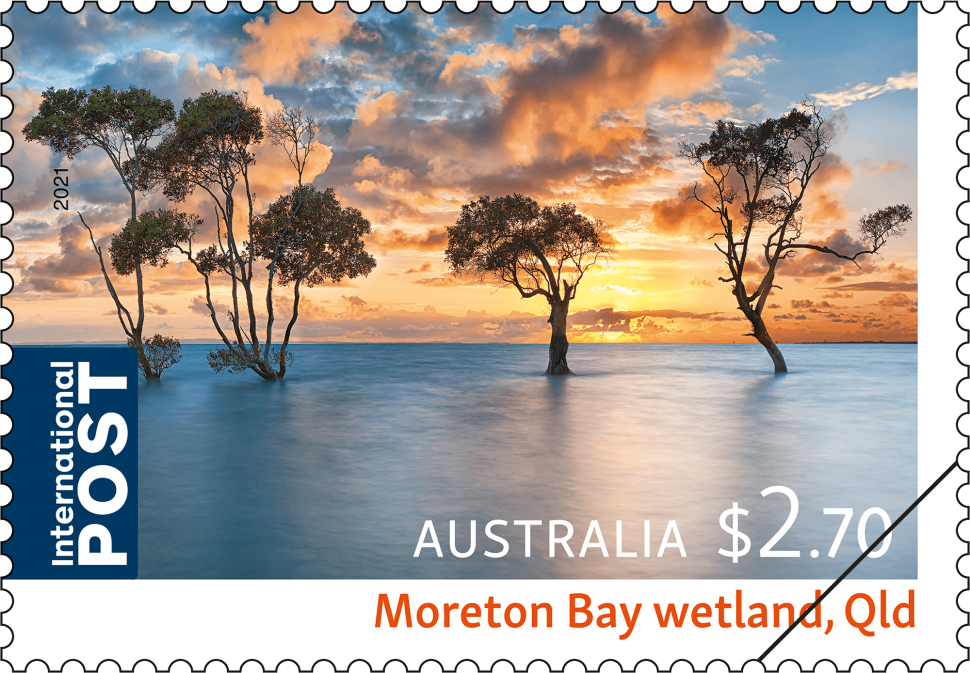Overview
An island nation of around 7.5 million square kilometres, Australia is home to some of the world’s most alluring and diverse natural landscapes, including fertile rainforests, arid deserts, ancient rockscapes, spectacular coral reefs, vital and productive wetlands, expansive mountain ranges and much more. Of our 20 UNESCO World Heritage sites, the majority of these have been inscribed on the list for their natural values, with four for their combination of outstanding natural and cultural values.
This stamp issue showcases a selection of Australia’s magnificent and dramatic natural landscapes viewed from an elevated perspective.
Technical specifications
- Issue date
- 23 August 2022
- Issue withdrawal date
- TBA
- Denomination
- $2.90 x 1, $3.50 x 1, $3.70 x 1, $4.00 x 1
- Stamp design
- Sharon Rodziewicz, Australia Post Design Studio
- Product design
- Sharon Rodziewicz, Australia Post Design Studio
- Paper: gummed
- Tullis Russell 104gsm Red Phos.
- Paper: self-adhesive
- Tullis Russell Red Phos PSA
- Printer
- RA Printing
- Printing process
- Offset lithography
- Stamp size (mm)
- 37.5 x 26
- Perforations
- 13.86 x 14.6
- Sheet layout
- Module of 50
- FDI Postmark
- Ayr QLD 4807
- FDI withdrawal date
- 24 October 2022
$2.90 Cradle Mountain, Tas.
Cradle Mountain is a place of exceptional beauty among the many natural treasures of the Tasmanian Wilderness World Heritage Area, which covers a fifth of the island state; it was inscribed on the UNESCO World Heritage List in 1982 for being one of the world’s last expanses of temperate rainforest.
In a photograph by John Charles Hill, the stamp shows Cradle Mountain crouched behind nearby Crater Lake, which is a classic cirque lake. The distinctive mountain is located in the north of the Cradle Mountain – Lake St Clair National Park, an environment of diverse ecologies and remarkable landscapes that supports alpine vegetation and abundant native wildlife, including the Tasmanian Devil, Platypus, quolls and echidnas.
$3.50 Kakadu, NT
One of the largest national parks in Australia and located some 250 kilometres east of Darwin, Kakadu covers around 20,000 square kilometres. It is on the traditional lands of the Bininj/Mungguy, whose connection with the Kakadu stretches back through generations for more than 60,000 years.
Kakadu’s vast expanse stretches from the coast in the north to stone country in the south, incorporating estuaries, floodplains and wetlands, savannah woodlands, forest areas, rocky ridges and escarpments, its oldest exposed rocks dating back to around 2,500 million years. These varied landscapes support extraordinary biodiversity and thriving ecosystems, with flora alone numbering around 2,000 species. Kakadu was recognised internationally when it was inscribed on the World Heritage List in 1981, with the park extended in 1987, 1992 and 2011. Kakadu is also home to the first Ramsar-designated wetland of international importance in the world, the Cobourg Peninsula.
The stamp photograph is by Daniel Tran.
$3.70 Bungle Bungle Range, WA
The Bungle Bungle Range is the extraordinary centrepiece of the 239,723-hectare Purnululu National Park, in Western Australia’s eastern Kimberley region, located at the interface between arid Central Australia and the monsoon savannah environment of northern Australia. Located on the traditional lands of the of the Kija/Gija, Purnululu was inscribed on the World Heritage List in 2003 for its outstanding natural values, in particular the sandstone karst formations that comprise the Bungle Bungle Range and cover an area of around 450 square kilometres.
A Devonian-era formation, the Bungle Bungle Range is composed quartz sandstone and conglomerates, which were deposited 375 million to 350 million years ago when faults shaped the dynamic environment. The maze of banded towers creates steep, narrow gorges, which wind through the range.
The stamp photograph is by Ethan Rohloff.
$4.00 Great Barrier Reef, Qld
Great Barrier Reef is a highly complex natural ecosystem that covers 344,400 square kilometres and runs from near the tip of Queensland’s east coast to just north of Bundaberg at its south. This remarkable marine treasure is the largest coral reef system in the world, comprising more than 3,000 individual coral reefs and hundreds of continental islands and coral cays. While the reef itself is a living architecture of some 600 species of soft and hard corals, it is also home to a great abundance of marine life, which includes some 1,625 species of fish, 3,000 species of molluscs, a great diversity of sponges, anemones and the like, and around 240 species of birds.
The Great Barrier Reef was inscribed on the UNESCO World Heritage List in 1981. UNESCO’s recent deliberations over changing the status of the reef to “in danger” highlights the vulnerability of this ecosystem to the impacts of climate change, particularly through increases in ocean temperature and acidity levels.
The stamp photograph is by Ethan Rohloff.
Shop our stamp collectables
Set of stamps:
Set of Aerial Views Gummed International Stamps
This stamp issue showcases a selection of Australia’s magnificent and dramatic natural landscapes viewed from an elevated perspective.
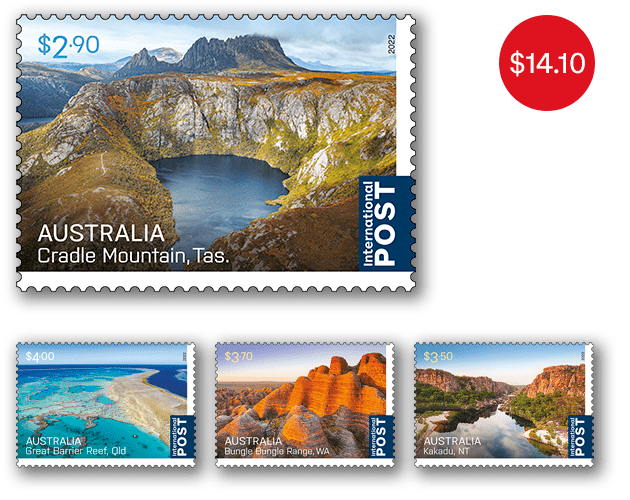
Stamp pack:
Aerial Views Stamp Pack
The Aerial Views stamp pack contains all four stamps from the stamp issue presented in a high-quality folder.
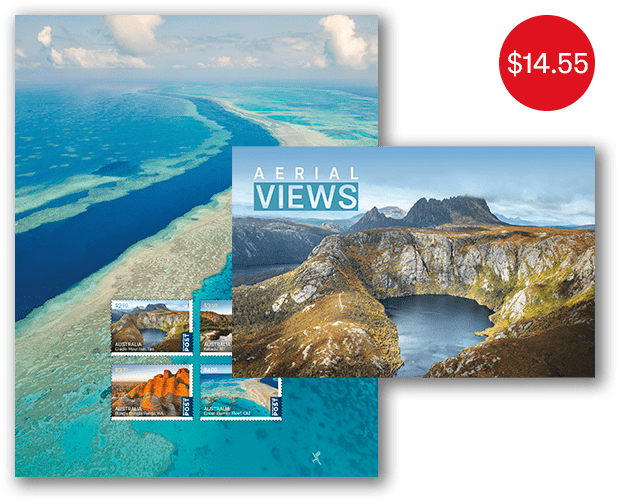
Sheetlet of 5x $2.90:
Sheetlet of 5x $2.90 Cradle Mountain International Stamps
This sheetlet contains 5x $2.90 Cradle Mountain International self-adhesive stamps from the Aerial Views stamp issue in a convenient wallet sized booklet.
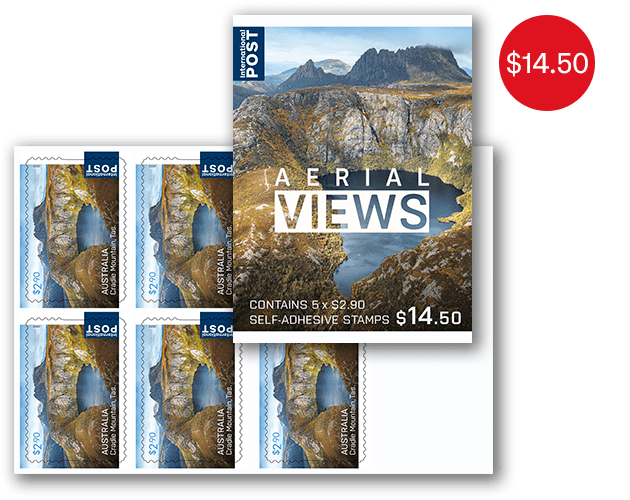
Maxicard set:
Set of Aerial Views Maxicards
This maxicard set contains the four maxicards from the Aerial Views stamp issue.
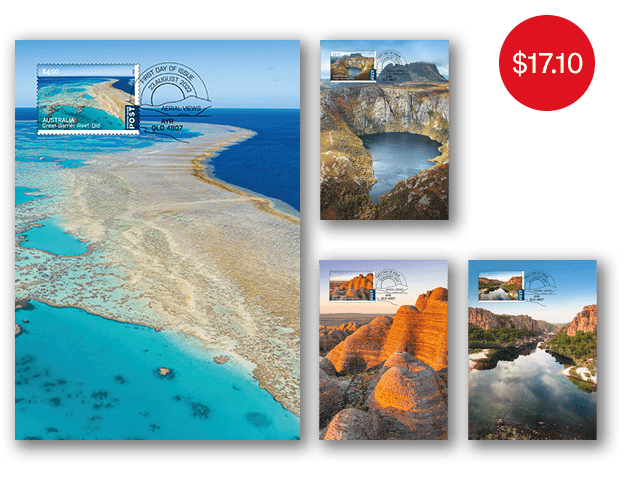
- Set of stamps
- Stamp pack
- Sheetlet of 5x $2.90
- Maxicard set
Additional collectables:
- Gutter Strip of 10x $2.90 Cradle Mountain International Stamps
- Gutter Strip of 10x $3.50 Kakadu International Stamps
- Gutter Strip of 10x $3.70 Bungle Bungle Range International Stamps
- Gutter Strip of 10x $4.00 Great Barrier Reef International Stamps
- Pictorial Envelope for the Aerial Views Stamp Issue
- Aerial Views First Day Cover (Gummed Stamps)
- Sheetlet of 5x $3.50 Kakadu International Stamps
- Sheetlet of 5x $3.70 Bungle Bungle Range International Stamps
- Chequebook of 100x $2.90 Cradle Mountain International Stamps
- Chequebook of 100x $3.50 Kakadu International Stamps
- Chequebook of 100x $3.70 Bungle Bungle Range International Stamps
This content was produced at the time of the stamp issue release date and will not be updated.
